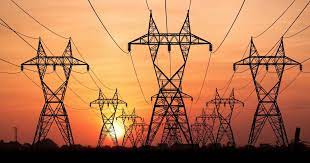In an effort to solve Nigeria’s recurring power system failures, the Federal Government has deployed new technology to detect and respond to abrupt decreases or dips in power generation across the country.
It announced this on Wednesday via the Transmission Company of Nigeria, adding that the new Generation Dip/Loss Detection System would improve TCN’s grid management skills.
On Tuesday, Nigeria saw its sixth power grid breakdown of 2024, with energy generation dropping from 2,583.77 megawatts at 2 a.m. on Monday to 64.7MW at 3 a.m. until the grid was restored later in the day.
According to the study, while the Transmission Company of Nigeria blamed Monday’s system collapse on a fire, it had previously cited gas shortages for power generation and destruction of electricity equipment for Nigeria’s recurring grid collapses.
Nigeria generates an average of 4,000MW of power for its estimated 200 million residents.
However, this is unlikely to last, since the system continues to collapse owing to gas supply restrictions, transmission infrastructure vandalism, and a cash crisis, among other factors.
To solve this, TCN’s spokeswoman in Abuja stated on Wednesday that the Federal Government’s corporation had deployed new technology to effectively control the transmission network and national grid.
It said, “As TCN continues to make efforts to enhance grid management, its engineers have recently deployed the Generation Dip/Loss Detection System which plays a pivotal role in detecting and responding to sudden drops or dips in power generation across the network.
“This new innovation stands as a testament to the Transmission Company of Nigeria’s commitment to advancing grid management capabilities.
“Designed to empower the National Control Centre in Osogbo, GLDS provides grid controllers in NCC with advanced tools for real-time monitoring and analysis of grid performance.
“Its intuitive interface allows for the setting of parameters, continuous monitoring of power generating stations, and comprehensive reporting functionalities, enabling swift responses to grid disturbances.”
The company said GLDS incorporates sophisticated data analytics and machine learning algorithms to analyse real-time data and identify patterns associated with sudden generation loss.
“By leveraging anomaly detection techniques, GLDS can promptly alert grid controllers on deviations from normal grid behaviour, facilitating proactive intervention to prevent widespread disruptions,” according to the statement.
TCN further stated that the system would ensure seamless communication between GLDS and IoT cloud servers, enabling a more rapid response and coordination of mitigation strategies.
It said this connectivity underscores the company’s commitment to enhancing grid resilience and ensuring the uninterrupted delivery of electricity to consumers across Nigeria.
The firm said, “Previously, TCN engineers had developed an in-house design that leverages on IoT technology as an innovative solution in response to the challenge of limited visibility of power generators.
“The IoT devices, which were strategically deployed across power stations and some substations, facilitate the collection of near real-time data, including power generation levels and grid performance metrics.
“The IoT enabled the expansion of visibility of power generating stations from six to 27, and this has helped TCN significantly improve its ability to monitor grid load and identify potential issues before they escalate.”
The power transmission company stated that recently, the IoT device was also used to capture generation from Taopex Gs and Zungeru hydropower station, bringing the total number of power stations visible to the national grid to 29.
It stated, “The GLDS and IoT represent a significant step forward in improving grid stability and reliability.”
“These initiatives not only empower TCN’s grid controllers with the insights needed to proactively address challenges and minimise disruptions but also demonstrate TCN’s dedication to meeting the evolving demands of the NESI (Nigerian Electricity Supply Industry).”

